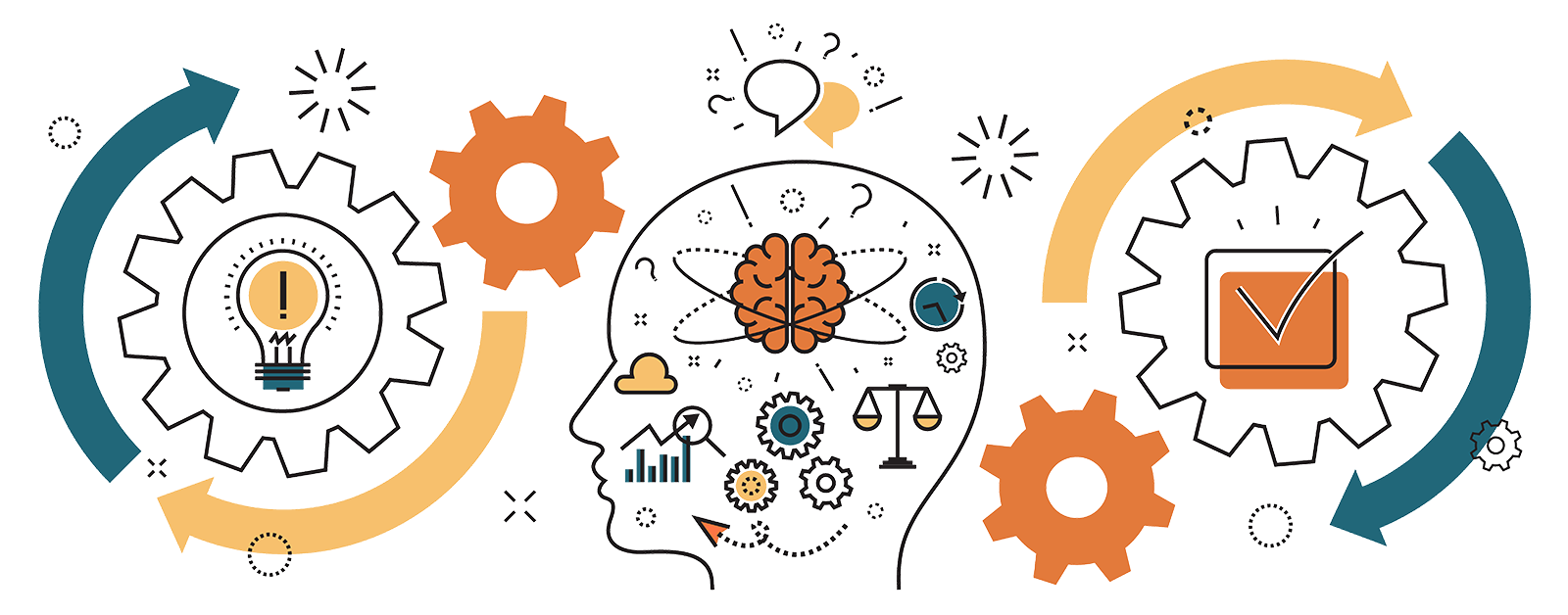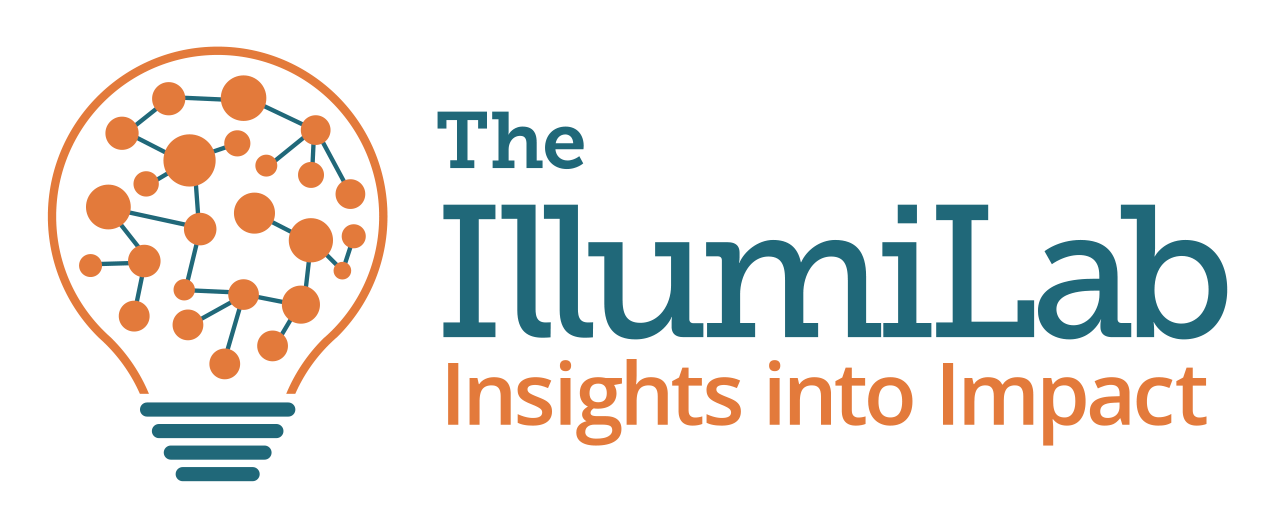
Over the years, we’ve assembled a vast library of online resources. These are a select few that we consider to be the most helpful for organizations that are seeking to design and launch their own Performance Management systems and organizational cultures of learning. All are available as free downloads with the links provided.
Assessing Your Organization’s Culture & Capacity for Learning
Readiness for Organizational Learning and Evaluation Instrument from Hallie Preskill and Rosalie Torres
A self-assessment tool designed to help organizations assess their readiness to implement and sustain learning and evaluation practices. Assesses the following domains: culture, leadership, systems and structures, communication and information, teams, and evaluation. Includes scoring and interpretation instructions.The IllumiLab has created (with permission) and online version of this tool that we’d be happy to share with you. Contact us to learn more.
40 Best Practices of Empowered Enterprises from Bersin & Associates
Outlines 40 organizational practice behaviors in six key domains that support organizational cultures of learning. The domains are: empowering employees, providing organizational support for learning, demonstrating the value of learning, encouraging reflection, enabling knowledge sharing, and building trust. Each behavior is ranked by its level of business impact.
Strategies for Cultivating an Organizational Learning Culture from Urban Institute
This 16-page guide defines organizational culture and describes strategies for transitioning from a culture of compliance to one of learning by focusing on capacity, structures, and processes.
Evaluative Thinking
Integrating Evaluative Capacity into Organizational Practice from the Bruner Foundation
This comprehensive guide defines Evaluative Thinking in contrast to evaluation and describes ways organizations can approach all of their work with this mindset in order to improve performance and transform the organizational culture.
Indicators of Evaluative Thinking from the Bruner Foundation
How can you tell if your organization (or one you fund) is thinking evaluatively? This list of indicators describes how an organization operates in each of its core functions, if it is being reflective and evaluative, with a posture of learning and improvement.
Evaluative Thinking Assessment from the Bruner Foundation
Want to see how your organization stacks up? Take this assessment.
Performance Management
Performance Matters from the Leap of Reason Ambassadors Community
Hear from non-profit leaders, in their own words, why performance matters and what difference performance management made in their organizations.
Building Capacity to Measure and Manage Performance from The Bridgespan Group
Outlines the organizational and leadership capacities necessary to build and sustain a meaningful performance management system and culture. Includes recommended competencies for staff responsible for this work as well as sample job postings and descriptions.
Working Hard & Working Well: A Practical Guide to Performance Management by David E.K. Hunter.
A 151-page free e-book that outlines the benefits of performance management, the key components of a performance management system, and a guide for facilitating a 4-step planning process to identify your Theory of Change, Target Population, and Outcomes.
Key Steps in Outcome Management from Urban Institute
A 43-page guide complete with worksheets and samples. Provides a comprehensive overview of the entire life cycle of Performance Management.
Performance Measurement to Evaluation from Urban Institute
This 21-page primer defines performance measurement and evaluation and compares the strategies and uses of each.
Theories of Change & Logic Models
Theory of Change Basics from ActKnowledge
A brief overview of the rationale and process for creating a Theory of Change model to guide program design.
Logic Model Workbook from Innovation Network
A step-by-step guide including templates for designing a program’s logic model and using it to evaluate results.
Logic Model Development Guide from W.K. Kellogg Foundation
A comprehensive 71-page guide that outlines the process for developing a Theory of Change and Logic Model for your program and using those tools to develop an evaluation plan.
Finding & Selecting Measurement Tools
If only there was one, centralized, curated compendium of standardized measurement tools! That’d be too easy. However, here are several links to similar such resources. Some are more carefully curated than others, so look carefully at the source documents and psychometric properties of any measure you consider using!
The Measures Database from the Ontario Centre of Excellence for Child and Youth Mental Health allows you to narrow your search for measures by domains, target populations, and keywords. They also have a great Glossary of Field Labels that is useful to help make sense of the terminology used to describe and categorize measures, which can help inform your decisions.
The Measurement Instrument Database for the Social Sciences allows users to upload measures directly, so read carefully. Not all measures are created equally.
FRIENDS (Family Resource Information, Education, and Network Development Service) includes a list of annotated tools related to child and family safety.
SchoolSocialWork.net is a free online resource and community for school social workers and school mental health professionals. Their site includes a list of measures available in the public domain and also links to other compendiums, many of which would be useful to a wider audience than school social workers.
The University of Washington at Tacoma includes a resource page on Social Work Measurement Tools that includes a link to the ETS Test Link database as well as recommendations for books with measurement tools.
The University of Oxford has a great page that describes the criteria that should inform our selection of measurement tools.
Selecting & Implementing Performance Management Software
Navigating Performance Management Software Options: A Guide to Choosing Nonprofit Performance Management Software from Urban Institute
An 18-page guide for organizations considering the use of performance management databases. Outlines how to assess your organization’s readiness for a system, how to define your data collection needs and capacities, and tips for shopping around and interacting with vendors.
A Consumer’s Guide to Case Management Systems from Idealware
A 55-page guide that describes the key characteristics and differentiating features among leading case management software. Provides an overview of the software landscape and then in-depth descriptions of 5 specific systems including ClientTrack, Apricot, ETO, Exponent Case Management for Salesforce, and ServicePoint.
Using Data for Learning & Improvement
Data Playbook from the Charles and Lynn Schusterman Family Foundation
This online, interactive guide outlines the key steps in meaningful and useful data collection, management and analysis.
Analyzing Outcome Information: Getting the Most from Data from Urban Institute
Describes simple approaches for analyzing program data to identify trends, significant differences, and needs.
Using Outcome Information: Making Data Pay Off from Urban Institute
Describes strategies for engaging your stakeholders in your outcome data by regularly sharing, reviewing, and acting upon it.
State of Evaluation from Innovation Network
Want to know what your peers are doing and see how you compare? This colorful and visually engaging report illustrates the capacities and strategies of nonprofit evaluation.
Quality Improvement
Quality Glossary from ASQ
This site is a comprehensive A to Z glossary of Quality Improvement terms, acronyms, people, and tools.
The Quality Improvement Handbook from ASQ
This brief book is the body of knowledge for the entry-level ASQ certification. It outlines the main quality improvement models and philosophies, a generic 10-step quality improvement process, and some of the core quality improvement tools.
The Quality Toolbox from ASQ
This encyclopedia includes dozens of quality improvement tools to support teams in identifying and prioritizing opportunities for improvement, exploring causes, designing and improving processes, brainstorming and selecting solutions, making decisions, and much more. It also includes a great introduction to a quality improvement process.
Quality Social Service by Curtis McMillen, University of Chicago
Though not currently supported, this website includes a number of blog posts, resources, and links related to the application of quality improvement tools and ideas to social services.
Stay connected to the latest conversations, resources, and happenings to ignite your insights and increase your effectiveness! Sign up here for our monthly newsletter. We won’t share your address with anyone, and you can unsubscribe at any time.
